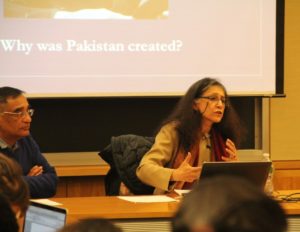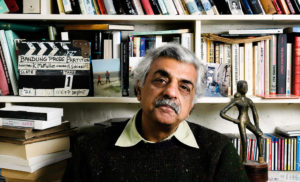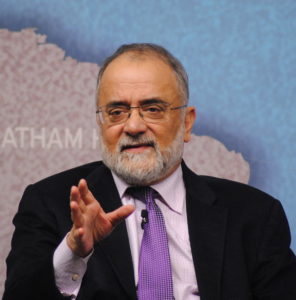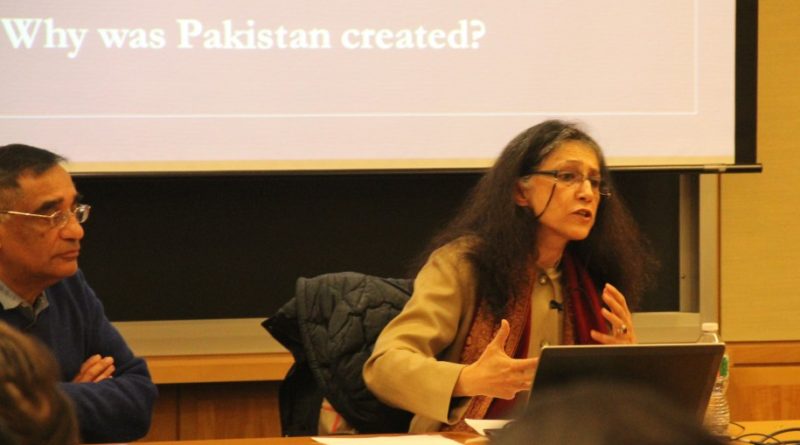Emigrant Literati and the Criticism of Pakistan
- A Reawakening of Pakistan
- National Narratives – A Double-Edged Sword
- Indus Inland Waterways System
- More Provinces
- Muslim Monopoly on Suffering. A New Way Forward
- National Defense ReCalibration
- The Foolishness of Conspiracy Theories
- Ijtihad
- Emigrant Literati and the Criticism of Pakistan
- Pakistan — History Denied
The topic of Pakistan’s identity crisis is debated incessantly by high-brow intellectuals. There is a cottage industry dedicated to Pakistan’s psychology. Entire academic careers have been built on predictions of Pakistan’s imminent demise due to its “ideological confusion”. At the forefront of this movement are the Pakistani expatriate literati. This group consists of distinguished individuals in Britain and the United States. They are scholars such as Tariq Ali, Farzana Shaikh, Ahmed Rashid, and Ayesha Jalal among others.
The literati are highly educated and deeply pessimistic about Pakistan’s prospects. Tariq Ali, for instance, wrote a book titled “Can Pakistan survive?” in 1983. He leaves no doubt about his prognosis with the subtitle “The Death of a State”. Ahmed Rashid’s titles include “Pakistan on the Brink”, “Descent into Chaos” and “A Fragile Future”. These titles sound like novels penned by Ian Fleming.

The problem is that the literati resonate with foreigners but not ordinary Pakistanis. The proclamations of intellectuals pontificating from the hallowed halls of Harvard and Oxford, hobnobbing with the upper crust of American, British and Indian society seem out of touch with the common man. A cynical Pakistani may retort it is perhaps the literati, not the layman that is identity-challenged.
This is unfortunate because along with pessimism there is wisdom in their body of work. It should be read and contemplated but the authors lament their work is given a chilly reception by Pakistanis.

Farzana Shaikh, author of “Making sense of Pakistan” believes it is her cultured and diverse background that makes her unpopular among Pakistanis. Ms. Shaikh believes her opinions are subject to intense scrutiny due to her Bengali heritage, marriage to a Frenchman, residence in England, and belief in India as her “intellectual home”.[1] Ms. Jalal too believes her reassessment of Jinnah in a less flattering light has created a “great deal of resentment there (in Pakistan)[2]”. Ms. Jalal, married to Sugata Bose, a former Indian parliamentarian may also be unfairly seen as “compromised” in the eyes of Pakistani nationalists. Mr. Ali’s association with Salman Rushdie is likely not seen favorably. The latter openly called for the “Indian-obsessed” nation (Pakistan) to be declared a terrorist state and removed from the comity of nations.[3]

The poor reception meted out to Ms. Shaikh, Ms. Jalal and others cannot be blamed entirely on the ignorance and xenophobic attitudes of Pakistanis. Pakistan faces many societal, economic, and security challenges. The literati are quite right to identify these problems. The expatriate literati though goes a step farther. They don’t merely sink the knife into Pakistani pride; they give it a twist. To them, Pakistan itself is a mistake. Its people lack a coherent identity. Its statehood is not viable. The country of their birth is without meaning. This is the insult to injury to prideful people and is unlikely to affect change.

It becomes quite clear though. The literati are not interested in positive change for their former homeland. They offer an inventory of problems but precious few tangible solutions. Their judgment is rendered; Pakistan is meaningless and should not exist. Yet there are millions of Pakistanis who remain dedicated to the Pakistani project no matter how convoluted it may seem to friend and foe. It is the Pakistanis, who toil in Pakistan, not the literati. It is their resilience that sustains Pakistan in spite of their predictions.
To the literati, Pakistan has one too many irreversible birth defects. Nothing Pakistan can do can resurrect or redeem its faulty birth. Millions of Pakistanis, though, refuse to roll over and die. Warts and blemishes, Pakistan is the very essence of their proud identity.
___________________________________________
[1] http://www.timeshighereducation.co.uk/407466.article
[2] http://www.nytimes.com/1998/12/26/arts/taking-on-pakistan-s-hero-then-taking-the-heat.html
[3] http://www.thedailybeast.com/articles/2011/05/02/salman-rushdie-pakistans-deadly-game.html
